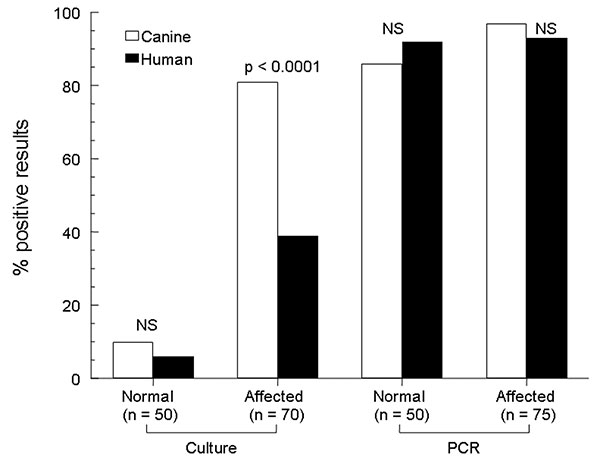Volume 11, Number 1—January 2005
Research
Malassezia pachydermatis Carriage in Dog Owners
Figure 1

Figure 1. Rates of detection of Malassezia pachydermatis on canine and human skin by 2 laboratory techniques. A normal group of dogs and a group known to harbor M. pachydermatis infection, paired with their respective owners, are represented. NS, nonsignificant; PCR, polymerase chain reaction.
Page created: April 15, 2011
Page updated: April 15, 2011
Page reviewed: April 15, 2011
The conclusions, findings, and opinions expressed by authors contributing to this journal do not necessarily reflect the official position of the U.S. Department of Health and Human Services, the Public Health Service, the Centers for Disease Control and Prevention, or the authors' affiliated institutions. Use of trade names is for identification only and does not imply endorsement by any of the groups named above.